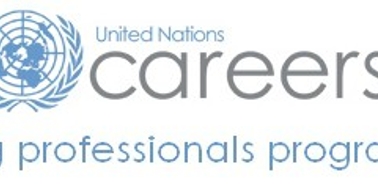- Home
- How To Apply To The Un Young Professionals Programme (ypp)
How to apply to the UN Young Professionals Programme (YPP)

Here are some helpful insider tips from a Masters in International Relations (MIR) alum!
I first became aware of the United Nations Young Professionals Programme following an email from the MIR program management. My application felt almost speculative at the time, but almost a year on and I am on the employment roster awaiting a placement.
I wanted to share my experience, as well some hints and tips that I picked up along the way. Let’s begin with choosing the job family; it may sound obvious, but the screening process in the initial stages focuses heavily on ‘relevance’. Keep this in mind throughout your application, and always try to relate your experiences to the competencies sought for your job family. Since being placed on the roster, I have been provided with some advisory documents from the UN which detail how to apply for each position, the questions mirror some of those on the YPP screening application so I have reproduced the relevant advice below.
Description of duties
“This section (maximum 2000 characters) is where you highlight your current and previous job responsibilities. Whenever possible, use the language of the UN competencies and describe your duties with careful attention to the vacancy for which you are applying. Be specific! Use action verbs; your current job should be described in present tense; all others in past tense.”
Summary of achievements
“This section (maximum 3700 characters) asks you to provide specific examples where you made an impact in your current and previous positions. Be sure to provide context, specific actions and the results you achieved. Using the C-A-R statement model context-action-result), be specific in describing the impact you have made”
With luck, you may be convoked to the written part of the examination, which usually takes place in December. This is split between a General section, which tests drafting skills and knowledge of the UN, and a specific paper which tests substantive knowledge in your chosen job family. Whilst the specific paper forms the vast majority of the marks, I cannot stress enough to practice and revise for the general paper, as the marking is eliminatory (i.e failure to pass the general paper means the specialised paper is not marked). Whilst I spent much time going over the UN-relevant reading list of the International World Order Elective, it is important not to forget to revise trivial answers such as the name as the Deputy Secretary General and the most recent nation to join the organisation, after all, much of the general paper is multiple-choice!
For the specialised paper, I can only advise you look at the past papers and revise to the best of your ability. The questions were a mix of bachelor and master level questions and there is a lot of time pressure. I was informed not to bring anything but a pen, but it became apparent on the day we needed calculators for the economics paper. This certainly made a few questions tricky and I wish I had known beforehand!
I have recently been contacted regarding the quarterly YPP recruitment rounds in which I have to rank a number of posts in order of preference. These includes posts in Switzerland, Ethiopia, Niger, Rwanda and Zambia. I hope to post again with an update of how life on roster is going and news of any placement. In the meantime, if you have any questions for me or about the process, please get in contact in the comments below.
